Vocabulary enhancement Easy Worksheets for Ages 3-8 - Page 2
60 filtered results
-
From - To
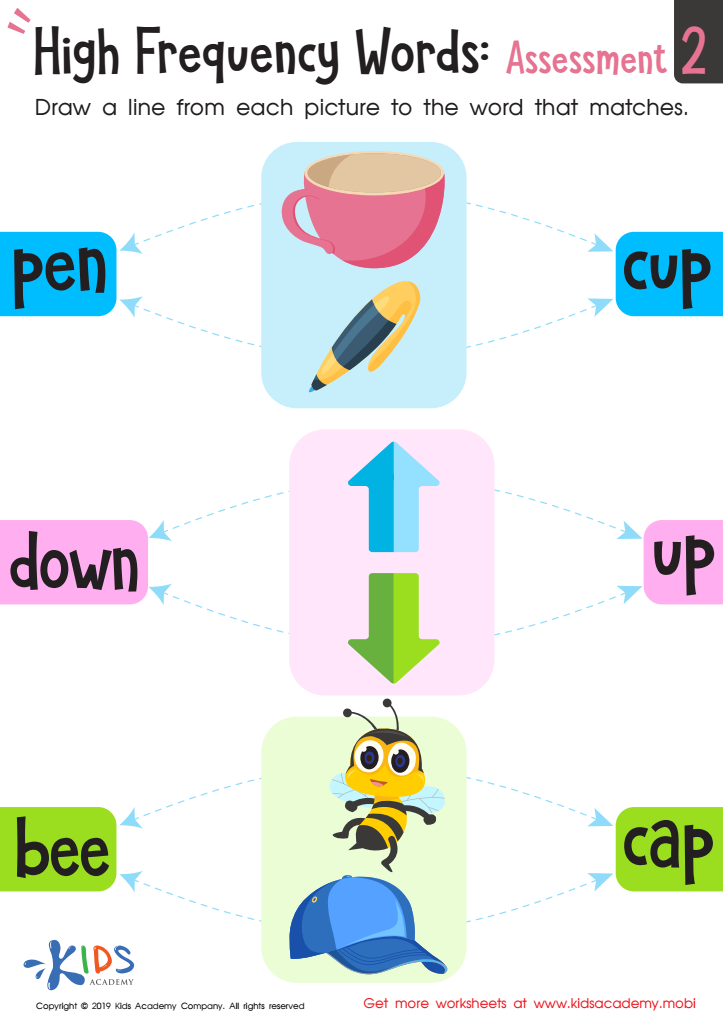

High Frequency Words: Assessment 2 Worksheet
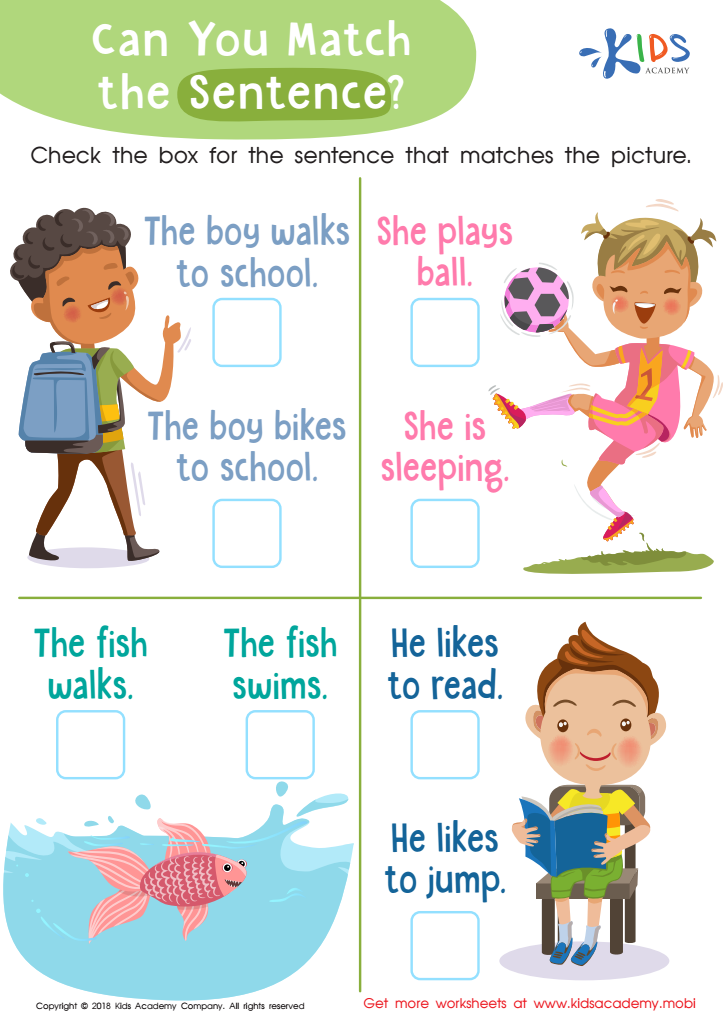

Can You Match the Sentence? Worksheet
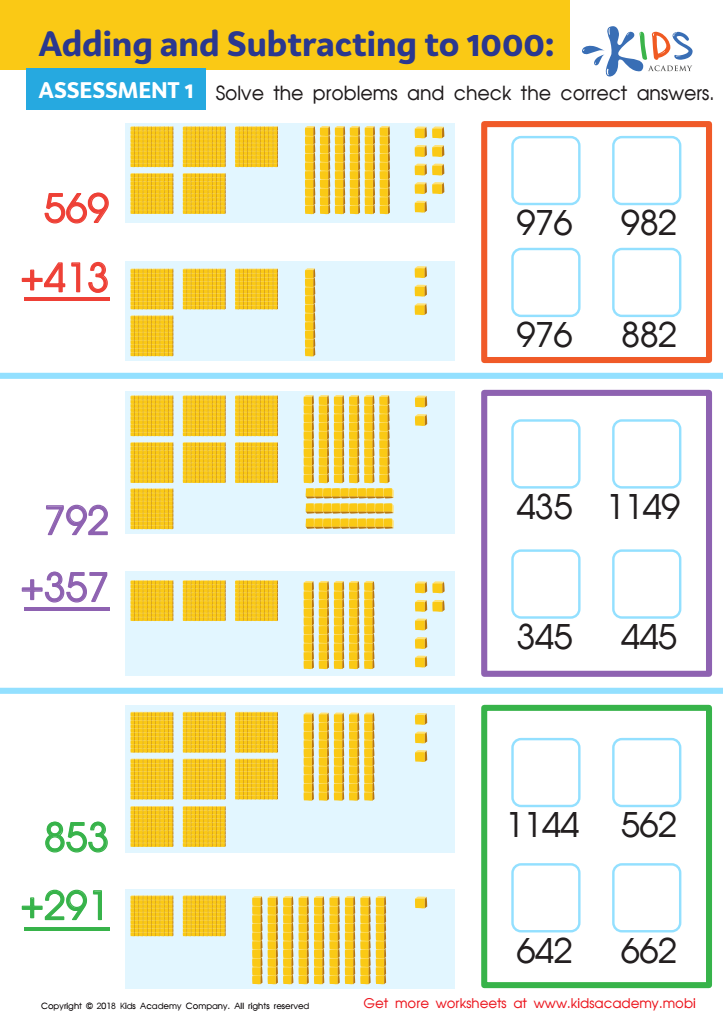

Adding and Subtracting to 1 Worksheet: Assessment 1
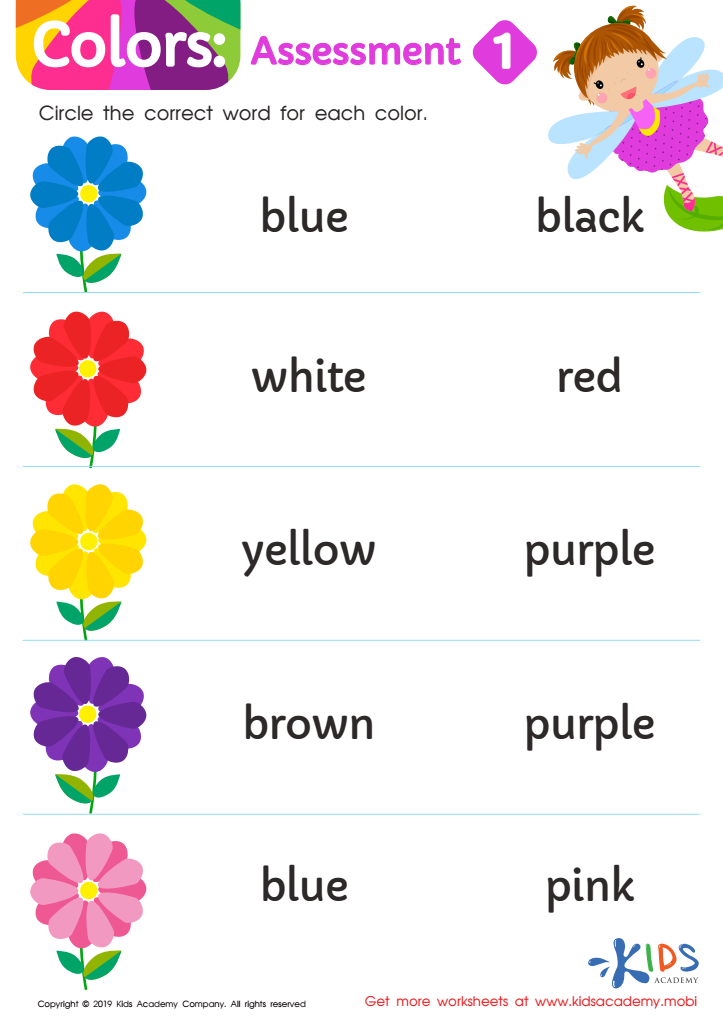

Colors: Assessment 1 Worksheet
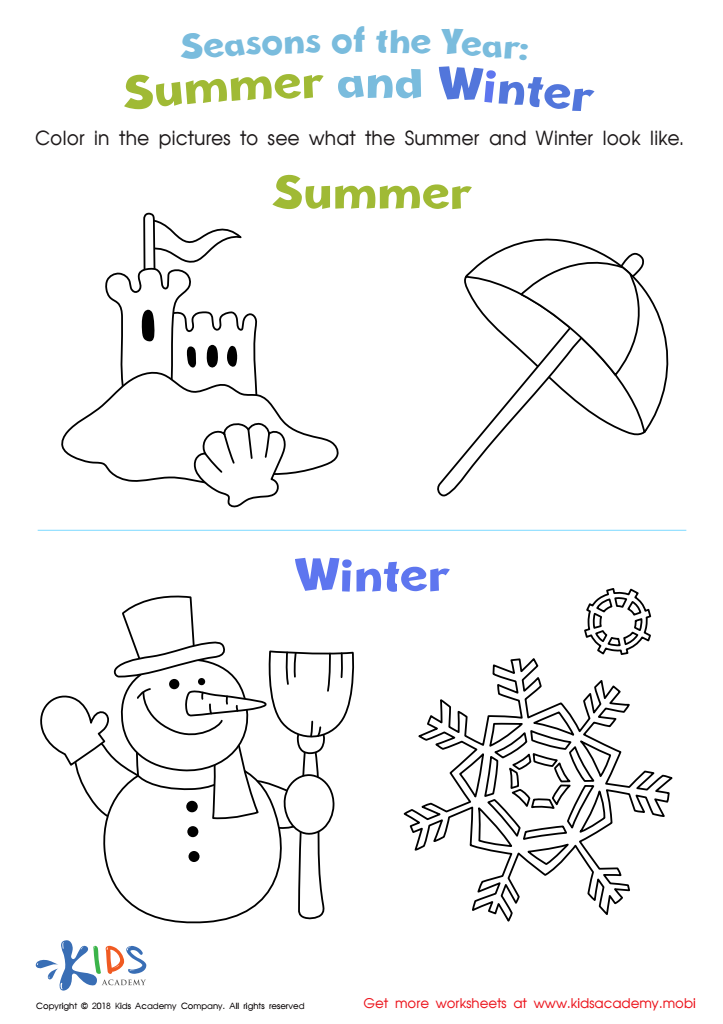

Summer and Winter Worksheet
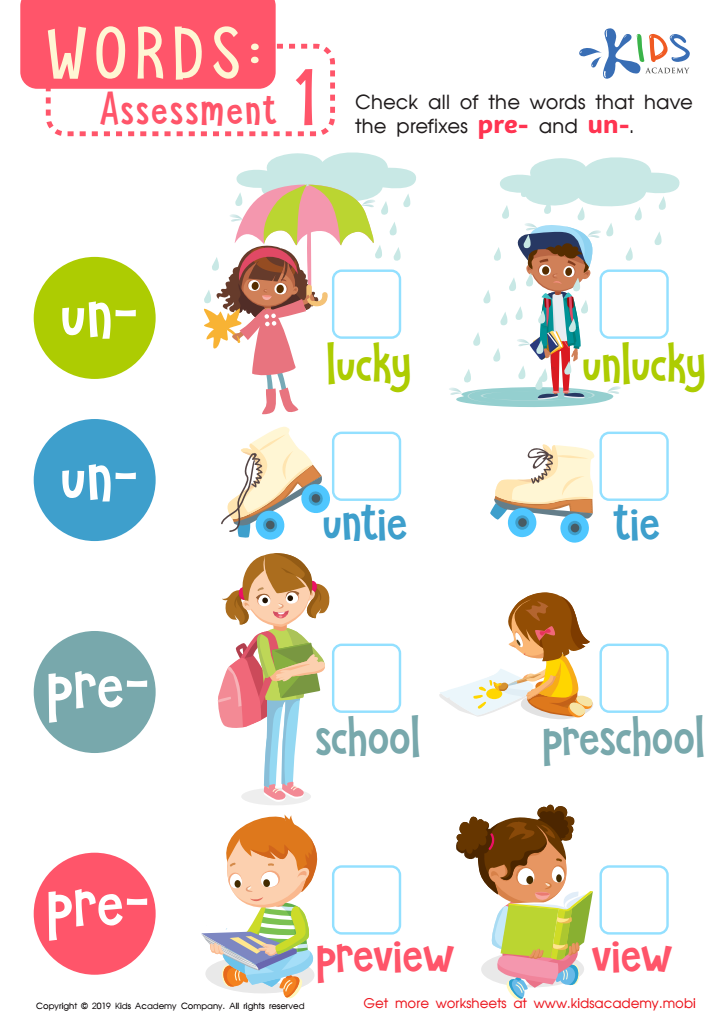

Words: Assessment 1 Worksheet
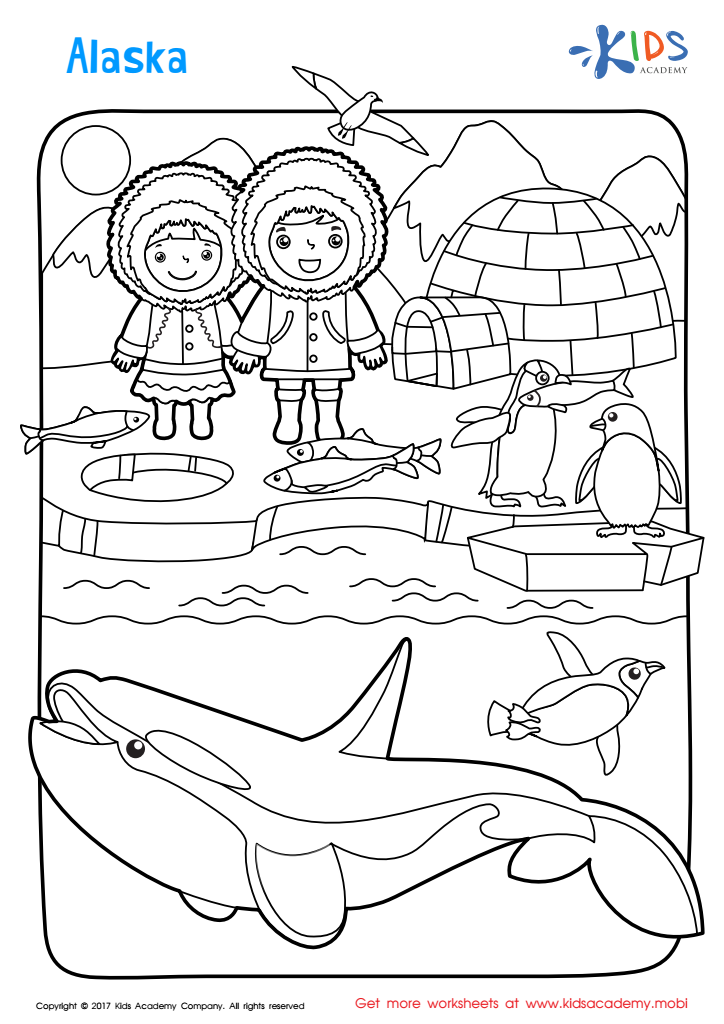

Alaska Coloring Page Worksheet
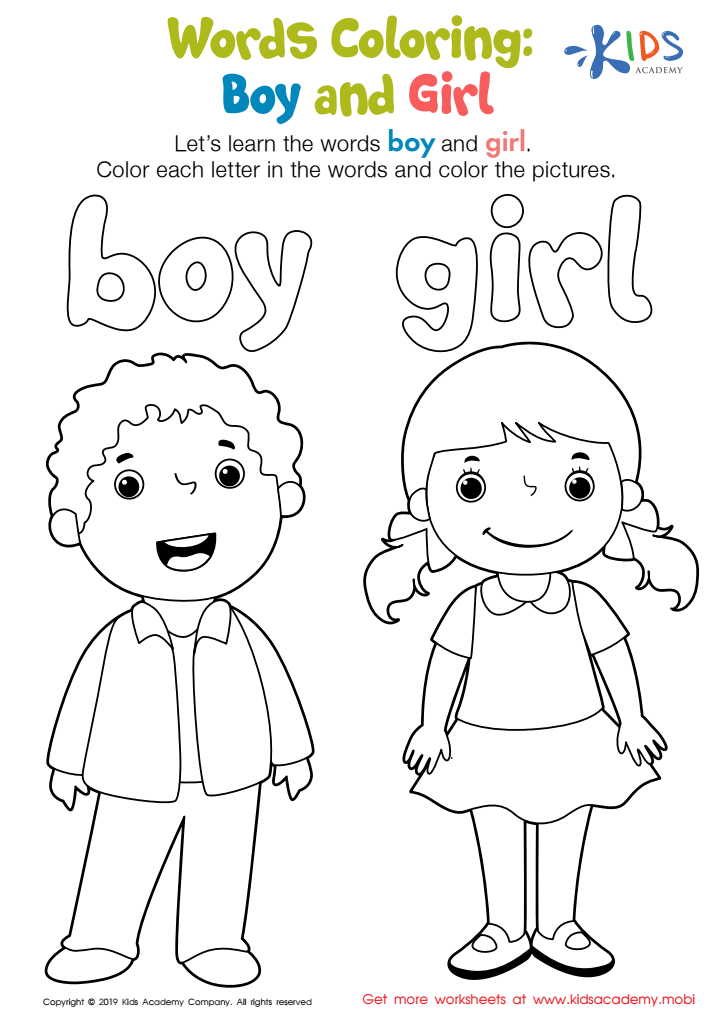

Boy and Girl Words Coloring Worksheet
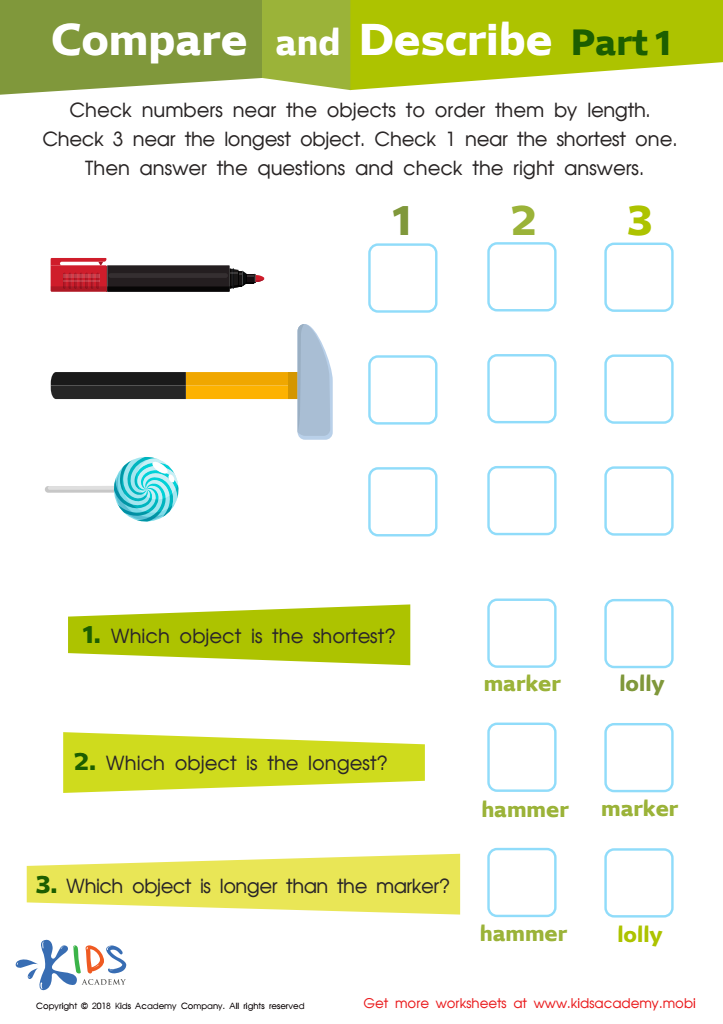

Compare and Describe: Part 1 Worksheet
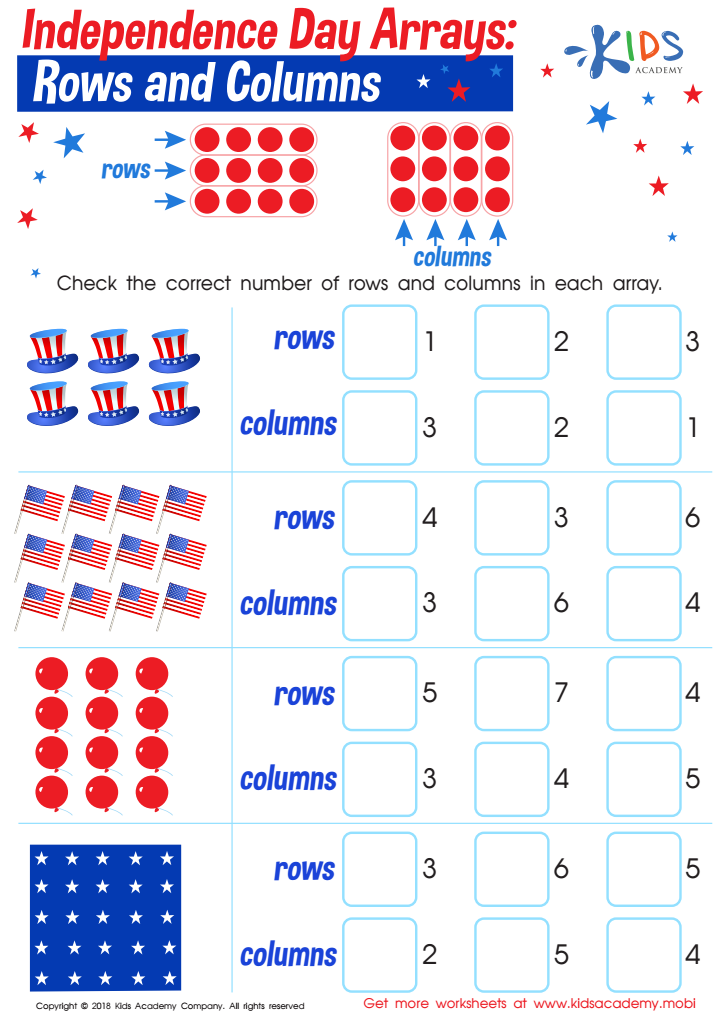

Independence Day Arrays: Rows and Columns Worksheet
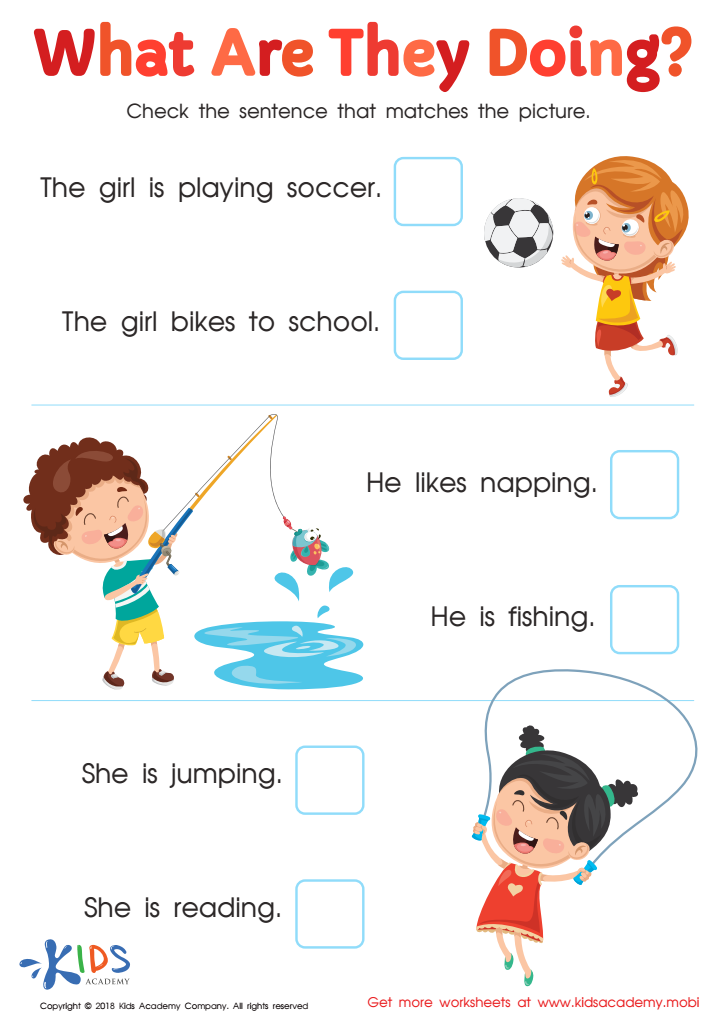

What Are They Doing? Worksheet
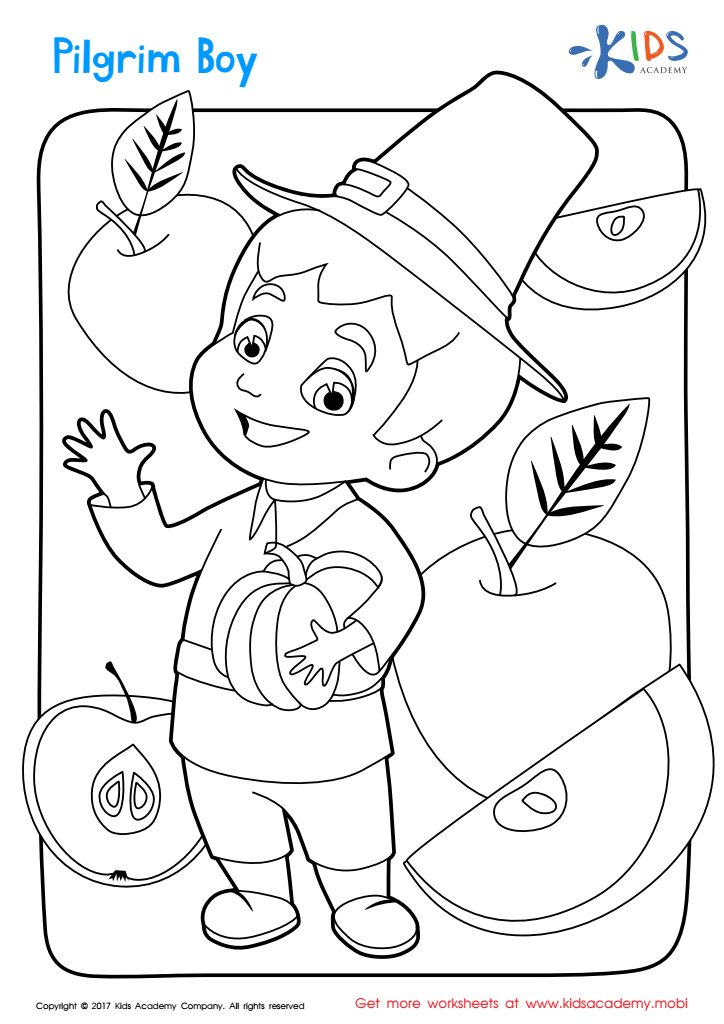

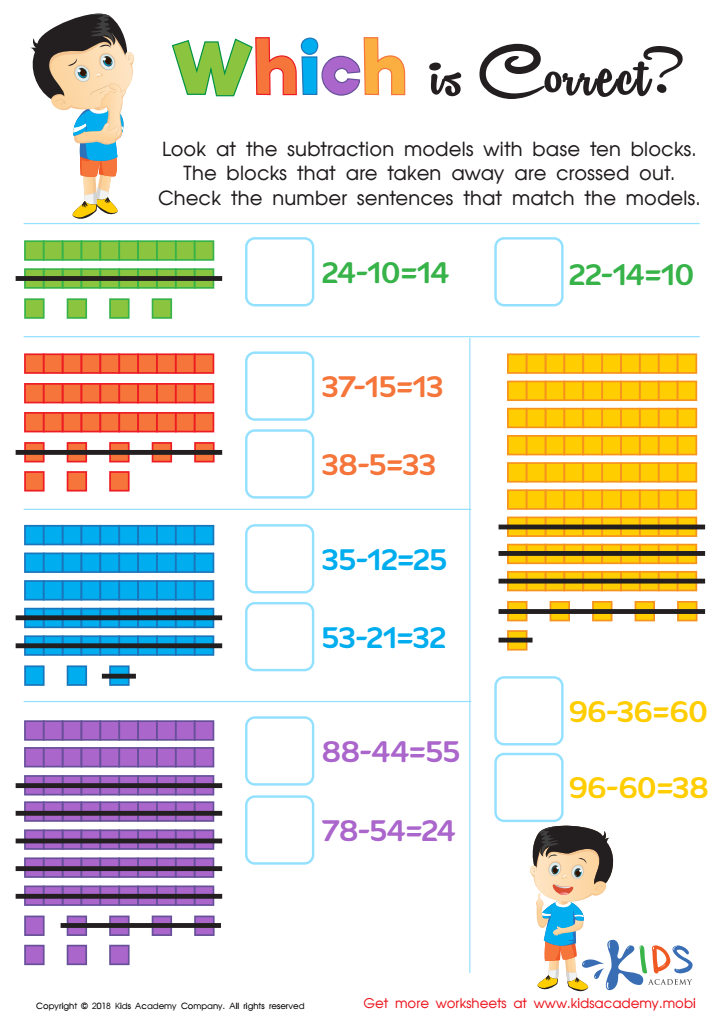

Which Is Correct? Math Worksheet
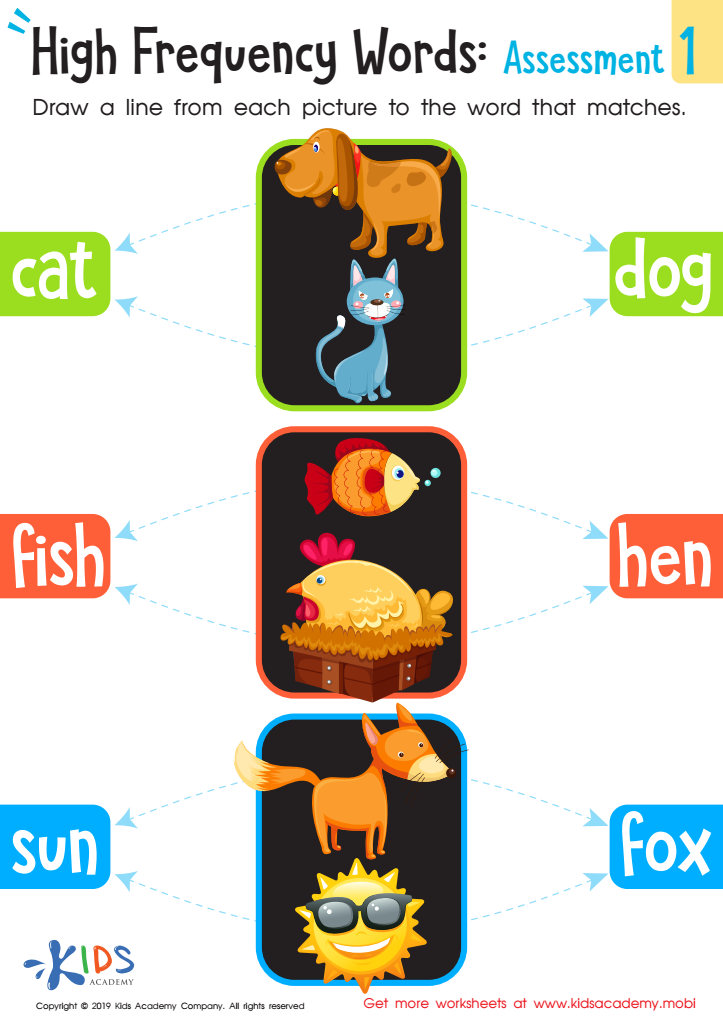

High Frequency Words: Assessment 1 Worksheet
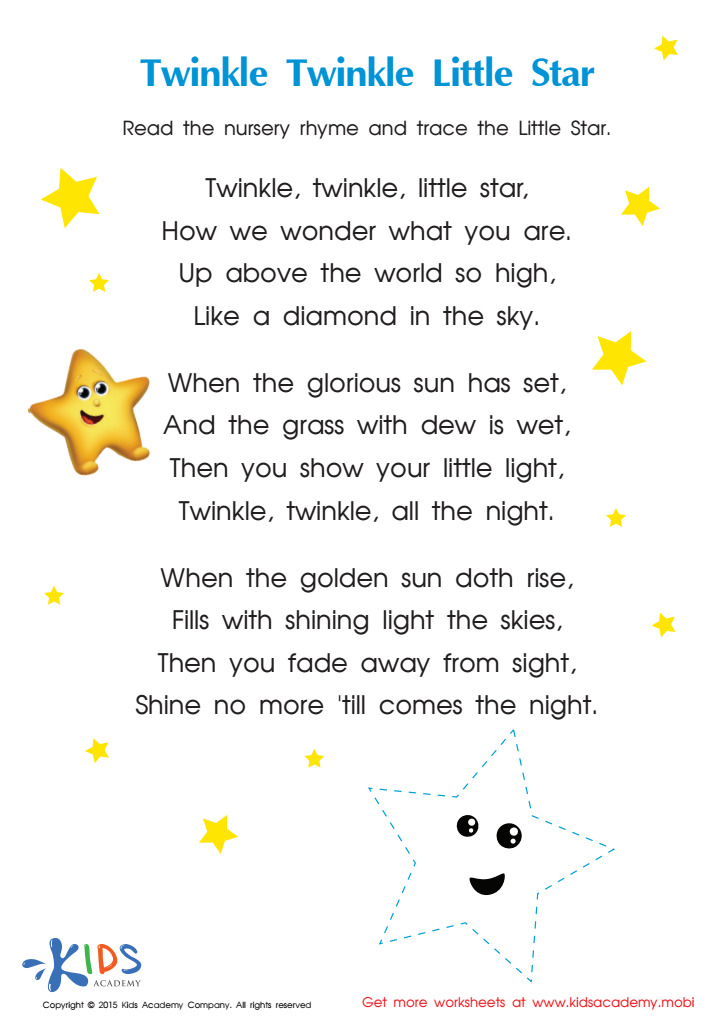

Nursery Rhymes: Twinkle Little Star Worksheet
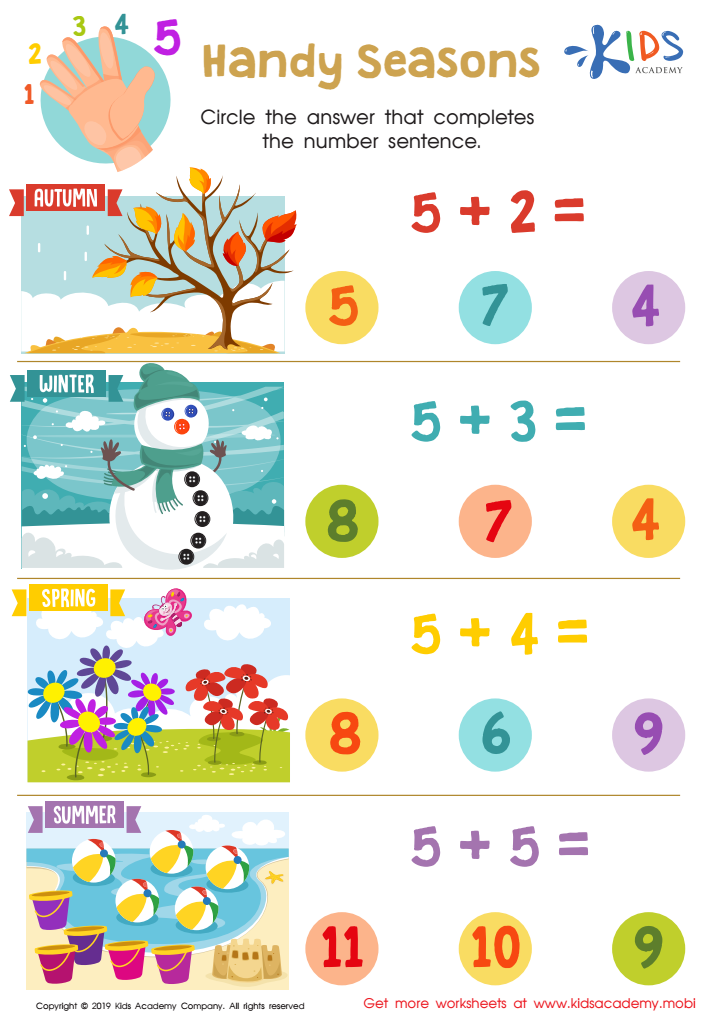

Handy Seasons Worksheet
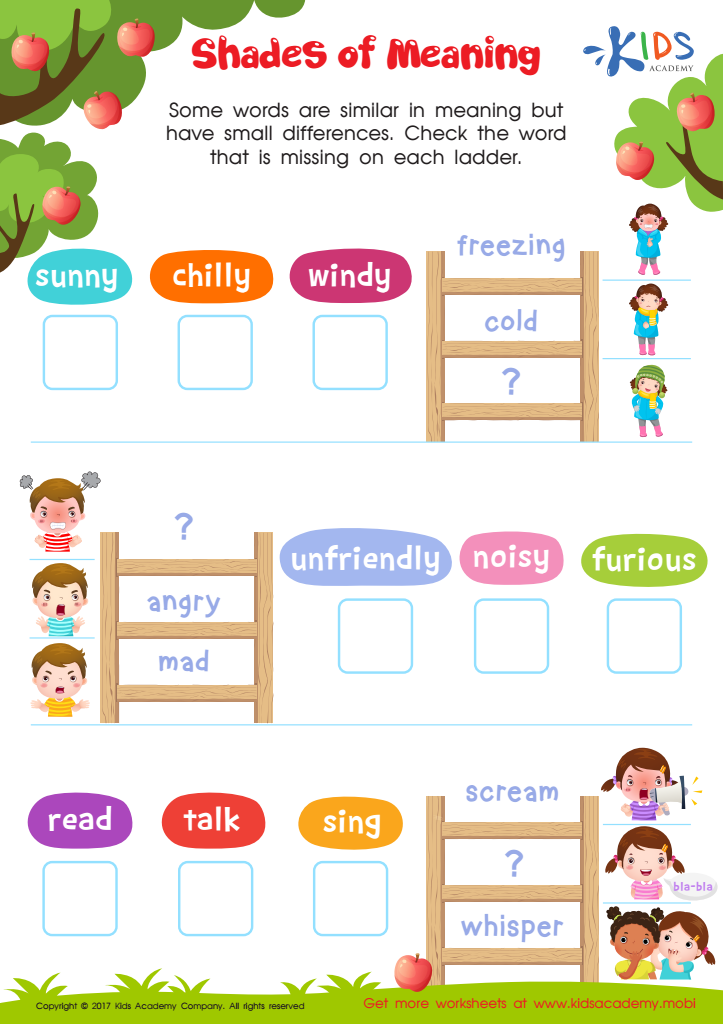

Shades of Meaning Worksheet
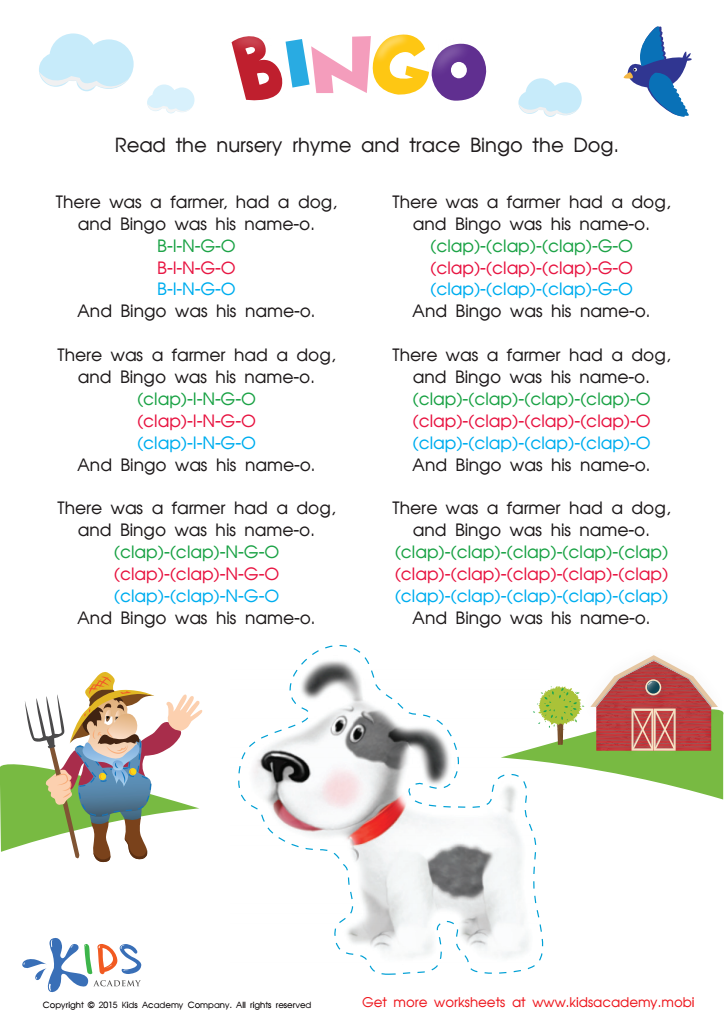

Nursery Rhymes: The Bingo Song Worksheet
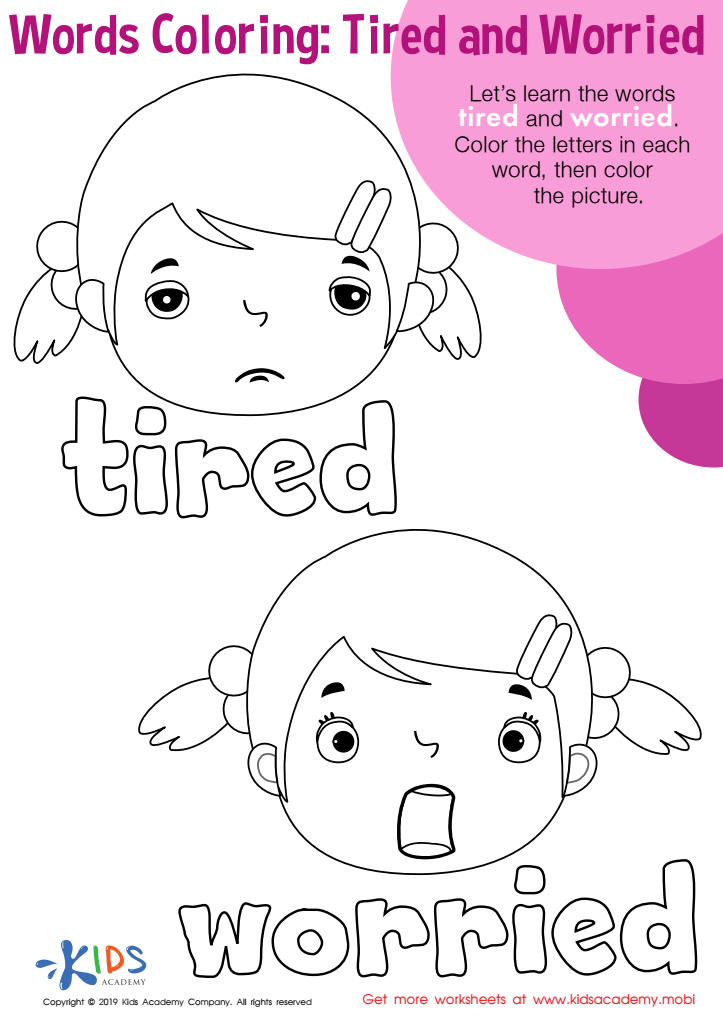

Tired and Worried Words Coloring Worksheet
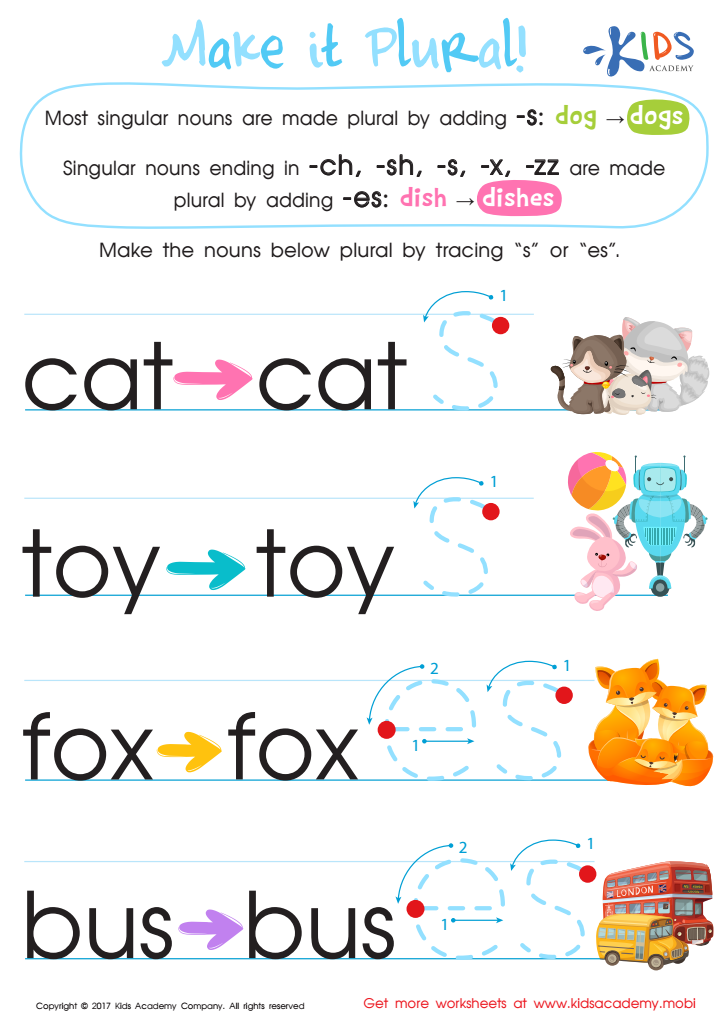

Make it Plural Worksheet
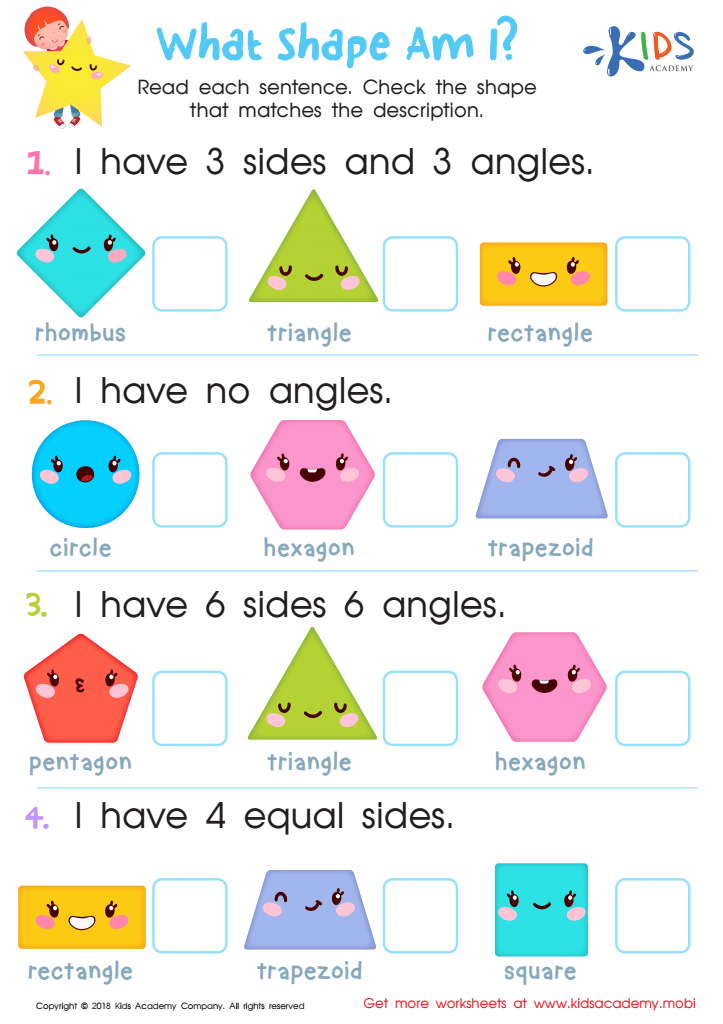

What Shape Am I? Worksheet
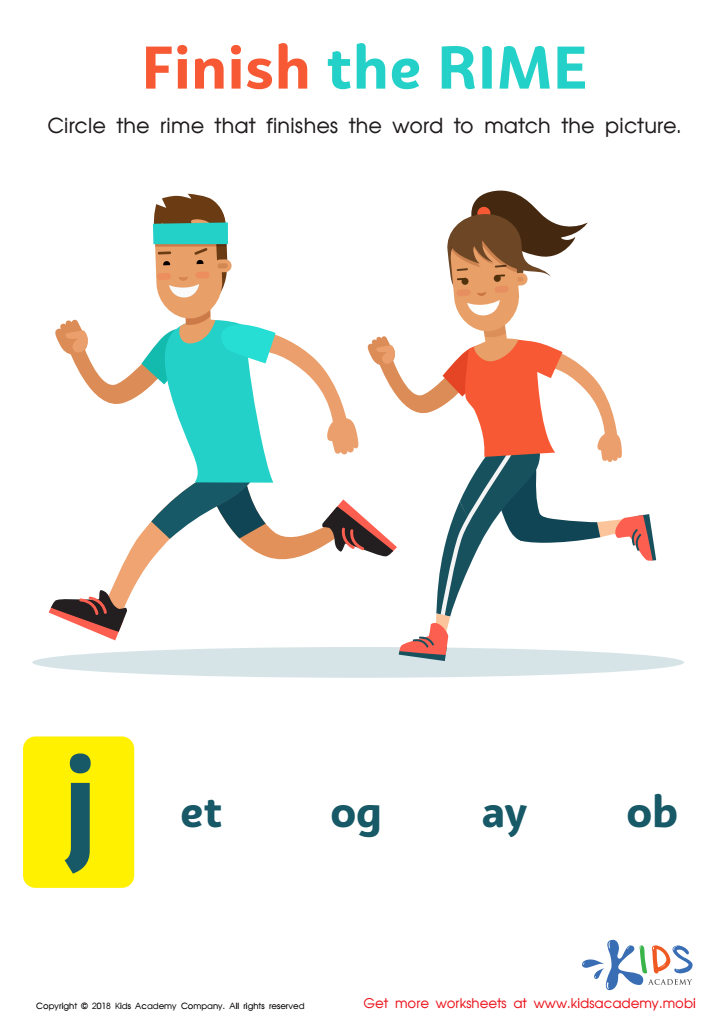

Finish the Rime Worksheet
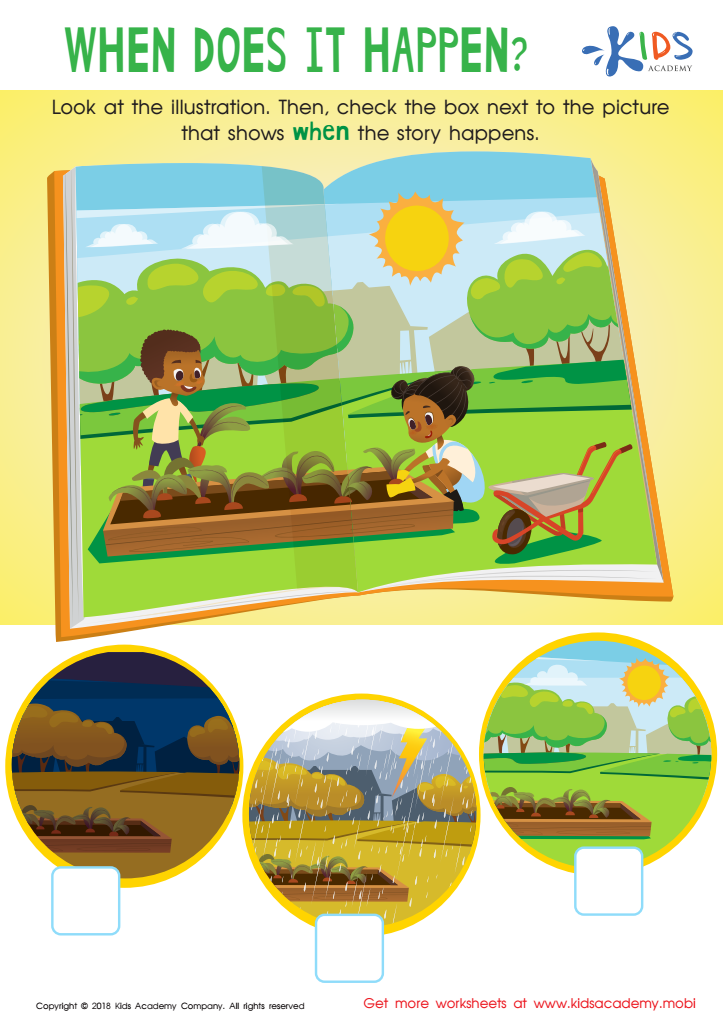

When Does It Happen? Worksheet


Phonics and Word Recognition: Assessment 1 Worksheet
Vocabulary enhancement is vital for young children ages 3-8 because it forms the foundation of their overall language development and future academic success. During these formative years, children's brains are incredibly receptive to new information, making it the ideal time to introduce a rich and diverse vocabulary.
A strong vocabulary aids in reading comprehension. When children understand the words they read, they are better able to grasp the meaning of texts, which boosts their confidence and encourages a love for reading. Additionally, a broad vocabulary enables children to express their thoughts and emotions more clearly and precisely, which improves their communication skills.
Early vocabulary enhancement also plays a critical role in cognitive development. It helps children categorize and process new information more efficiently, fostering better problem-solving abilities and critical thinking skills. The richer a child's vocabulary, the more tools they have to understand complex concepts and ideas as they grow older.
Beyond academic benefits, a strong vocabulary supports social development. Children who can articulate their thoughts and feelings effectively are more likely to develop meaningful relationships and navigate social interactions confidently.
In essence, focusing on vocabulary enhancement from an early age prepares children for future educational challenges and enriches their social and emotional lives, making it a crucial aspect of early childhood education.
 Assign to My Students
Assign to My Students























